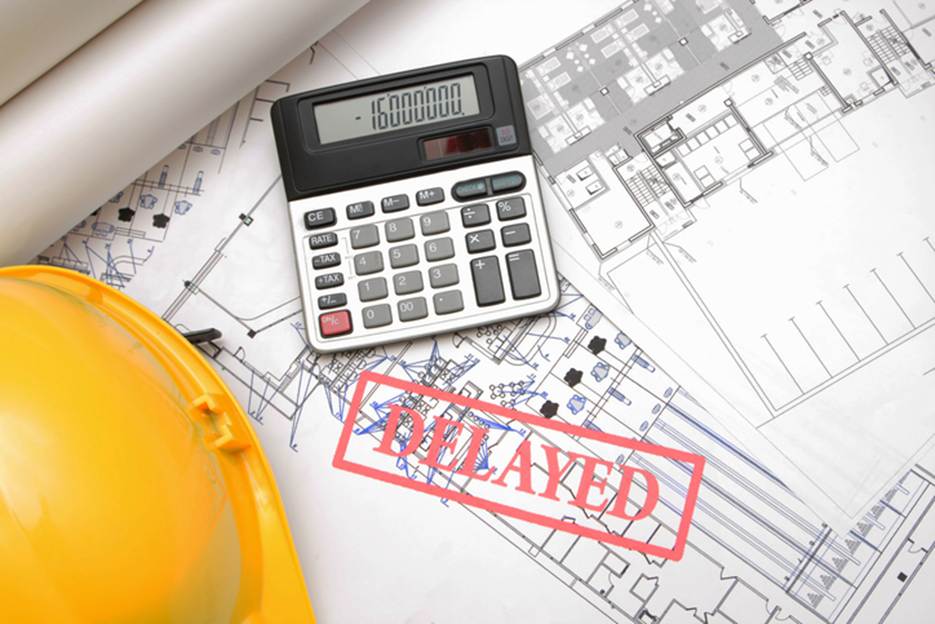
Stalled Projects, Broken Promises: Fighting Construction Delays in New York
Delays on a construction project aren’t just frustrating—they can cost you real money, waste valuable time, and throw your entire schedule off track. In New York, with its fast-paced building environment and strict regulations, even a few lost days can snowball into serious legal headaches. And when deadlines slip without warning, you're left holding the bag.
Whether you're a developer, contractor, or property owner, you need to know your options. At Horn Wright, LLP, our commercial litigation attorneys understand how construction timelines affect the bottom line. When projects stall, we step in to identify what went wrong, pursue accountability, and push your goals back on track because we know how to turn construction disputes into opportunities for resolution.

Is Your New York Construction Delay a Legal Breach?
Not all delays are created equal. Some are unfortunate but acceptable. Others? They cross the line into breach-of-contract territory.
Critical vs. Non-Critical Delays
Understanding the type of delay is step one in figuring out if you have a legal case.
- Critical delays affect the project's final completion date. If a plumbing subcontractor is late and it pushes everything else back, that’s critical.
- Non-critical delays don’t push the finish line. Maybe the landscaping got pushed a week, but everything else stayed on schedule.
If a critical delay was avoidable—and not caused by you or an uncontrollable event like extreme weather—it might be grounds for a breach claim.
Time-Is-of-the-Essence Clauses in NY Contracts
Some contracts make deadlines more than just targets. A "time is of the essence" clause means missed dates are automatic breaches, no excuses.
In New York, courts take these clauses seriously, but they need to be clear and specific. Simply stating it once in a heading won’t cut it.
Under New York contract law, judges look at the language and context. If timely performance was clearly essential to the deal, you’ve got a stronger argument.
What to Do When Delays Derail Your Project
Once it’s clear your construction timeline has gone off the rails, the next step is figuring out why—and what you can do about it.
Proving Who’s to Blame
Accountability matters. Before pointing fingers, you need documentation.
Start here:
- Daily construction logs: These often reveal when the delay started and who was involved.
- Change orders and RFI logs: Too many change requests or unanswered RFIs can expose poor project management.
- Correspondence: Emails, texts, and meeting notes help show who knew what, and when.
Whether it's the general contractor, a subcontractor, or even an architect that dropped the ball, a clear paper trail can make your case stick.
Legal Tactics That Work in New York Courts
When informal pressure doesn’t fix the problem, it’s time to escalate. That’s where commercial litigation attorneys come in.
Here are a few legal tools they might use:
- Breach of contract lawsuit: If deadlines were missed and the contract terms are clear, you can sue for damages.
- Injunctions: If delays are ongoing and threatening critical milestones, courts may order the other party to act—or stop acting.
- Construction lien claims: These can be filed against a property to secure payment or damages owed.
In New York, timelines for filing certain claims are strict. For example, under Lien Law §13, contractors and subcontractors must file liens within specific timeframes after work stops.
How Much Time Lost = Money Owed in NY Construction Contracts?
Knowing a delay occurred is one thing. Turning that delay into dollars and cents? That’s where things get technical.
Liquidated Damages vs. Actual Loss
Two main ways delays get priced in contracts:
- Liquidated damages: These are pre-set penalties written into the agreement (e.g., $2,000 per day past the deadline). Courts will usually enforce them if they’re reasonable and not overly punitive.
- Actual damages: If the contract doesn’t list a specific number, you can still sue—but you’ll need to prove the real losses, like lost rent from delayed occupancy or extra labor costs.
Keep in mind, the court will scrutinize how well you documented those losses.
Getting Compensated for Setbacks
If you're the one delayed and you’ve suffered financially, there are ways to get compensated.
You may be able to recover:
- Out-of-pocket costs from extending construction financing or insurance
- Lost revenue from tenants or customers who couldn’t move in on time
- Additional contractor fees to fix or replace non-performing teams
With strong documentation and help from commercial litigation attorneys, you can build a case for recovery under New York’s breach and damages rules.
Final Thoughts from Horn Wright, LLP
Delays in construction aren’t just annoying—they can derail an entire investment or business plan. If your project in New York has gone off schedule due to another party’s breach, you don’t have to absorb the hit. The commercial litigation attorneys at Horn Wright, LLP, are here to help you uncover the truth, calculate what you're owed, and hold the right people accountable. We’re proud to be one of the best law firms in America because we help New Yorkers keep their construction projects—and their rights—on solid ground.

What Sets Us Apart From The Rest?
Horn Wright, LLP is here to help you get the results you need with a team you can trust.
-
Client-Focused ApproachWe’re a client-centered, results-oriented firm. When you work with us, you can have confidence we’ll put your best interests at the forefront of your case – it’s that simple.
-
Creative & Innovative Solutions
No two cases are the same, and neither are their solutions. Our attorneys provide creative points of view to yield exemplary results.
-
Experienced Attorneys
We have a team of trusted and respected attorneys to ensure your case is matched with the best attorney possible.
-
Driven By Justice
The core of our legal practice is our commitment to obtaining justice for those who have been wronged and need a powerful voice.

